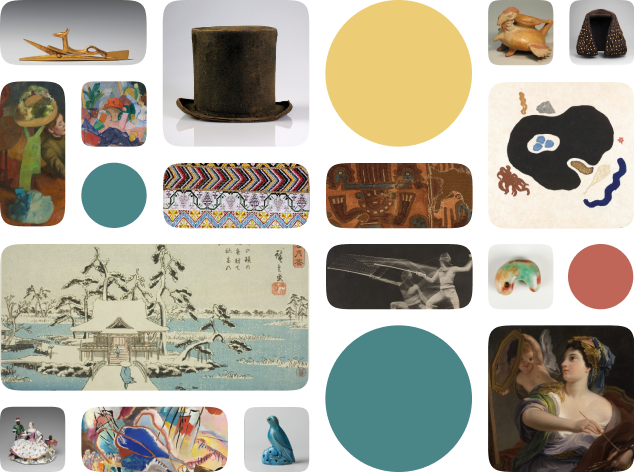Bound Oryx Dish
Creator Name
--
Cultural Context
--
Date
Source
About the work
Brooklyn Museum Object Description
Wooden toilet dish in the form of a bound oryx. Feet folded under body bound with four thongs. Head in the round with horns connected at their ends to body. Tail curved against body. One side of body hollowed in roughly oval shape to serve as container. Condition: Slight restoration in gesso near feet. One section of horn restored. Horns had warped slightly.
This work represents an Egyptian antelope, now extinct, called the scimitar oryx. The Egyptians attempted to domesticate this species during the Old Kingdom and to use it as a food source for gods and humans. Typically it is shown bound, because it was considered an enemy of Osiris.
This dish was used both to offer ...
This work represents an Egyptian antelope, now extinct, called the scimitar oryx. The Egyptians attempted to domesticate this species during the Old Kingdom and to use it as a food source for gods and humans. Typically it is shown bound, because it was considered an enemy of Osiris.
This dish was used both to offer ...
Work details
"--" = no data available
Title
Creator
--
Worktype
Cultural Context
--
Material
Dimensions
Technique
--
Language
--
Date
Provenance
Style Period
--
Rights
Inscription
--
Location
Source
Subject
--
Topic
--
All Works in Curationist’s archives can be reproduced and used freely. How to attribute this Work:
Bound Oryx Dish, ca.1390–1352 B.C.E., Brooklyn Museum. Creative Commons-BY.
Help us improve this content!
Let our archivists know if you have something to add.
Save this work.
Start an account to add this work to your personal curated collection.
